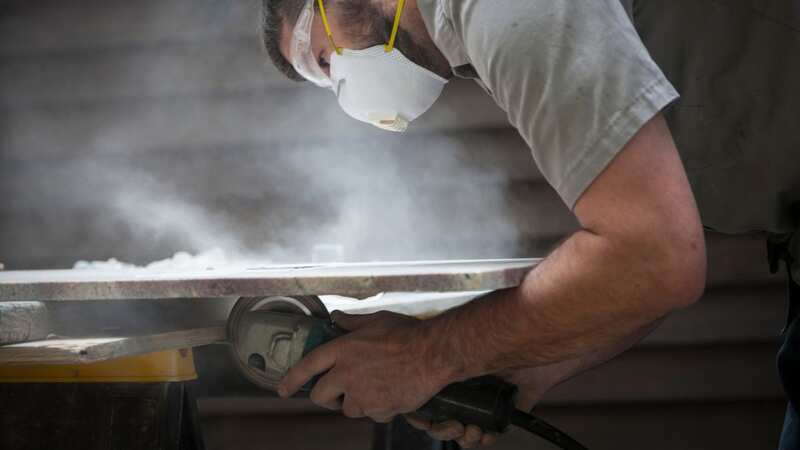Severe and incurable disease destroying lungs kills young Latino workers

A health crisis has broken out with young Latino manual labourers developing a severe and incurable lung disease from their work.
Latino immigrants work on heavy slabs of engineered stone, producing countertops in California's Pacoima region. These workers are exposed to hazardous levels of silica dust while cutting and grinding these stones, putting them at risk of developing silicosis, a severe and incurable lung disease.
Traditionally, silicosis has been associated with older workers, but alarmingly, it's now affecting younger individuals in their 20s, 30s, and 40s, with some succumbing to the disease in their 30s, and receiving terminal diagnoses. This trend is deeply concerning and underscores the urgency of addressing the issue.
One of them, Leobardo Segura Meza, is a 27-year-old father who was once an active individual but now struggles to breathe due to his exposure to silica dust. He received inadequate protection in the form of a dust mask while working with the dust-laden stone slabs.
For all the latest news, politics, sports, and showbiz from the USA, go to The Mirror US
 10 heart symptoms that tend to be ignored - including palpitations and arm pain
10 heart symptoms that tend to be ignored - including palpitations and arm pain
 Silicosis is a severe and incurable lung disease that destroys the lungs (Getty Images/iStockphoto)
Silicosis is a severe and incurable lung disease that destroys the lungs (Getty Images/iStockphoto)Segura Meza expressed his concerns and fears about silicosis. He told the Los Angeles Times, "There's no cure for this illness. The only thing they can do is a lung transplant." He also shared his apprehension that as more workers become ill, there might not be enough available lungs for transplantation, highlighting the severity of the disease's impact on affected individuals in the industry.
A study conducted by physicians from UCLA and UCSF found that almost 20% of Californian workers who contracted silicosis from grinding countertops had died. Their median age at death was 46. More than half of those diagnosed with the disease experienced delays due to misdiagnosis as bacterial pneumonia or tuberculosis, and over a third had severe lung scarring at diagnosis.
Efforts to combat the crisis are underway, with community outreach workers like Maria Cabrera and Claudia Vasquez from Pacoima Beautiful working to raise awareness among workers. They encourage safety measures such as using wet saws and NIOSH-approved respirators to minimize exposure to silica dust.
 Leobardo Segura-Meza, 27, struggles to breathe due to his exposure to silica dust (Cal/OSHA)
Leobardo Segura-Meza, 27, struggles to breathe due to his exposure to silica dust (Cal/OSHA)The government is also taking steps to address the issue. California is in the process of drafting emergency rules to protect workers, and there is consideration of banning the sale and installation of engineered stone with high silica content. Los Angeles County is exploring these measures to enhance workplace safety.
However, there is a debate within the industry with some arguing for better enforcement of existing safety measures. Others suggest that the dangerous nature of the engineered stone makes it unfit for use.
Raphael Metzger, an attorney representing affected workers, contended that the standard safety precautions are insufficient. Metzger argued that engineered stone “is too dangerous to be used safely,” and “If there’s any industrial product that should be banned, this is the product.”
Meanwhile, many consumers are unaware of the health risks associated with engineered stone countertops, which have become increasingly popular. The industry has seen a shift toward these materials, with over 60% of countertops now made from engineered stone.
Read more similar news:
Comments:
comments powered by Disqus

































